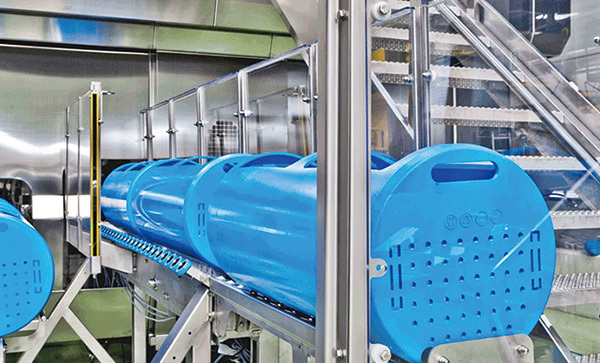Vegan Cheese: How to Improve Your Dairy-Free Way
Vegan cheese is a popular dairy-free alternative to traditional cheese that offers health and nutritional benefits. It is low in calories, cholesterol-free and lactose-free, and is a good source of plant-based protein. Driven by increasing consumer demand for plant-based alternatives, the vegan cheese market is expected to grow rapidly in the coming years. High-pressure processing (HPP) technology is a non-thermal food processing technology that can extend the shelf life of vegan cheese products without affecting their taste, texture and nutrition. HPP can also reduce the risk of foodborne illness and spoilage, and some companies are already exploring commercialization.
Vegan cheeses are dairy-free cheeses that can be made with a variety of plant-based ingredients, so they are suitable for vegetarians and vegans. They can offer various health benefits and nutritional advantages over traditional dairy cheeses. They are lactose-free and cholesterol-free, making them suitable for people with dairy allergies or intolerances. In addition, vegan cheeses tend to be lower in calories than dairy cheeses, making them a healthier choice. They are a good source of plant-based protein, so they can help promote muscle growth and repair. Additionally, they are often low in saturated fat and contain essential vitamins and minerals, so they can help promote overall health and well-being. Additionally, some plant-based cheeses may contain probiotics, which can help promote a healthy digestive system.
Vegan cheese is becoming increasingly popular, with great acceptance among consumers (70.5% are likely to buy it), and the market is growing rapidly. It is expected to be worth $7.10 billion by 2027, with a compound annual growth rate of 9%. The market is expected to be driven by increased consumer demand for plant-based and vegan alternatives to traditional dairy products.

Tel:
+86-18736438639
E-mail:
Get A Quote
Products of any complexity at the best price
COOKIES
Our website uses cookies and similar technologies to personalize the advertising shown to you and to help you get the best experience on our website. For more information, see our Privacy & Cookie Policy
COOKIES
Our website uses cookies and similar technologies to personalize the advertising shown to you and to help you get the best experience on our website. For more information, see our Privacy & Cookie Policy
These cookies are necessary for basic functions such as payment. Standard cookies cannot be turned off and do not store any of your information.
These cookies collect information, such as how many people are using our site or which pages are popular, to help us improve the customer experience. Turning these cookies off will mean we can't collect information to improve your experience.
These cookies enable the website to provide enhanced functionality and personalization. They may be set by us or by third-party providers whose services we have added to our pages. If you do not allow these cookies, some or all of these services may not function properly.
These cookies help us understand what you are interested in so that we can show you relevant advertising on other websites. Turning these cookies off will mean we are unable to show you any personalized advertising.








